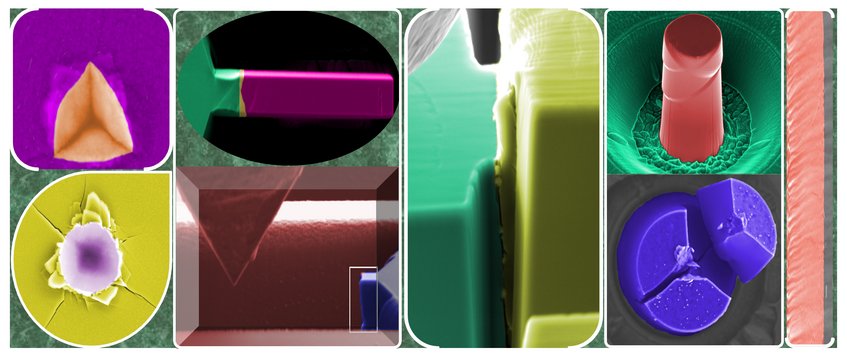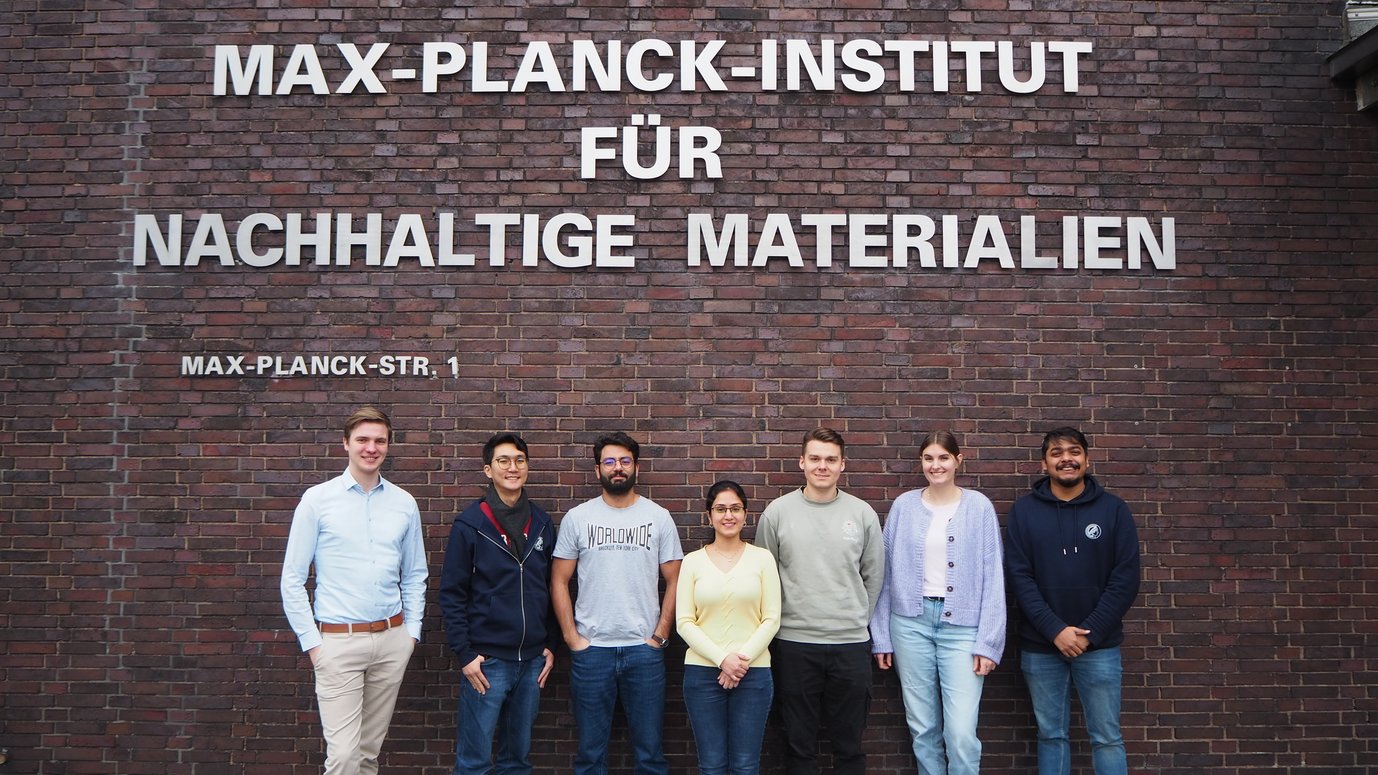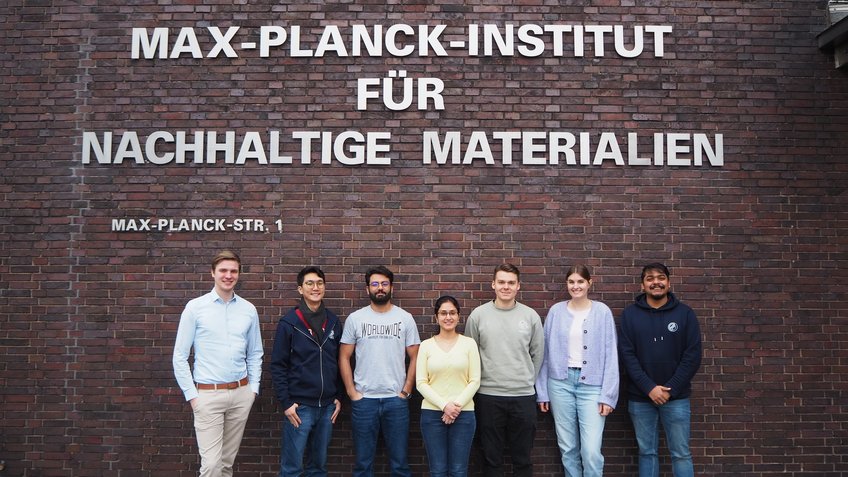
Thermo-Chemomechanics and Interfaces
Grain boundaries and hetero-interfaces play a decisive role in controlling fundamental deformation mechanisms such as dislocation motion and crack propagation which govern a material‘s strength, ductility and fracture toughness. The group Thermo-Chemomechanics and Interfaces (THINC) focuses on unlocking exciting properties of such material interfaces in advanced materials and the role of thermo-chemomechanics driven interfacial plasticity and fracture on the global material response. Understanding fundamental processes of interfacial deformation is crucial for developing damage tolerant and sustainable materials for various cutting-edge applications ranging from miniaturized microelectronics and energy materials, protective coatings, to aerospace and advanced manufacturing.
Most of these materials are exposed to high temperatures, harsh chemical environments and cyclic loads in their lifecycle. This makes chemo-mechanical degradation of interfaces, driven by plasticity, fracture or fatigue major reliability challenges. By using state-of-the-art in situ nano-/micromechanical testing, coupled with novel method development techniques, advanced microfabrication methods such as focused ion beam milling and microscopic characterization the group strives to unravel new insights into site-specific thermo-chemomechanical interactions at interfaces at the micrometer length scale.
Model material systems, including thin films and single- or bicrystals, or materials processed by our colleagues are tested using in-situ nanoindentation system under varied temperatures (upto ~800 °C), strain rates and environments (reducing or corrosive atmosphere) inside the SEM, allowing us to capture real-time insights into interface deformation processes due to local fracture mechanics or dislocation plasticity.

The group Thermo-Chemomechanics and Interfaces of Dr. Kanjilal is a succession of the group Mechanics at Chemical Interfaces which she has led since January 2025. Formerly the group Mechanics at Chemical Interfaces was led by Dr. James P. Best until December 2024.
